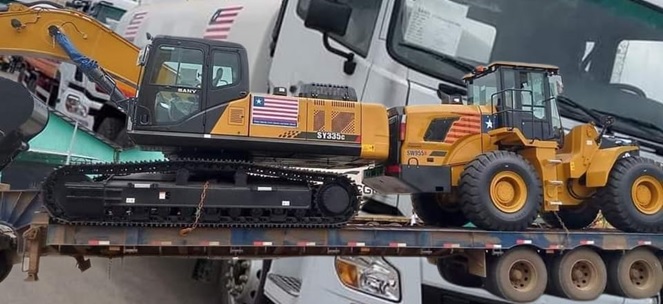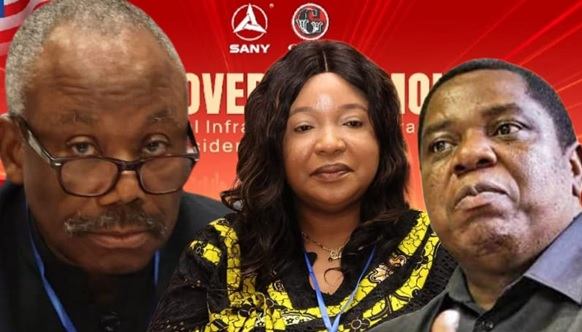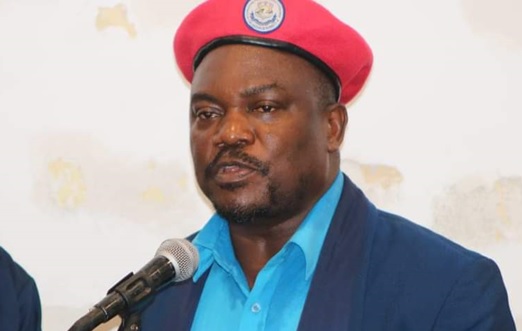MONROVIA – The acquisition of 285 yellow machines by President Joseph Nyima Boakai’s administration has stirred significant controversy, with increasing demands for transparency. The secrecy surrounding the procurement process has led to public outcry, particularly regarding the lack of information from the Executive on how these machines were acquired.
Senator Amara M. Konneh of Gbarpolu County on Monday, July 8, 2024, voiced his concerns on his official Facebook page. He highlighted the absence of a financing instrument in the Legislature for the recent acquisition and stressed the need for full transparency and oversight by the Legislature. Konneh warned that the lack of competitive procurement evidence raises serious concerns about the government’s reputation and adherence to the rule of law. He cautioned that if these issues are not addressed, they could lead to major problems, including potential sanctions against public officials.
Konneh emphasized the necessity of internal accountability within the government, urging lawmakers, regardless of political affiliation, to demand transparent answers. He pointed out the brewing ethical storm between the Executive Mansion and the Capitol Building, suggesting that the matter might eventually reach the Supreme Court.
Adding to the criticism, Martin Kollie, a well-known advocate against corruption, exposed the Executive’s reportedly shady dealings. Kollie claimed that the procurement involved an exorbitant US$80 million over four years, labeling it a waste and an abuse of power. He accused South African businessman Robert Gumede, along with his accomplices Mamaka Bility and Sylvester Grigsby, of planning to siphon millions from Liberia’s national treasury through dubious deals and kickbacks.
Kollie insisted that while development is crucial, it should not come at the expense of laws on accountability, transparency, and compliance. He alleged that Gumede, notorious for corruption scandals, would inflate prices and distribute kickbacks to presidential confidants, leaving Liberian taxpayers to bear the US$80 million liability.
The secrecy surrounding this acquisition has not only ignited public frustration but also drawn international attention. Observers have noted that the opaque handling of the procurement process could undermine investor confidence in Liberia, potentially deterring much-needed foreign investment. Transparency International has flagged the situation, emphasizing the importance of accountability in maintaining Liberia’s international standing and fostering economic growth.
In response to the uproar, civil society organizations have called for immediate investigations into the procurement process. The Center for Transparency and Accountability in Liberia (CENTAL) executive director Anderson Miamen said, “We need roads, but not at the expenses of our laws and accountability frameworks and processes. With glaring lack of transparency around the yellow machines or earth-moving equipment saga, it leaves many questions than answers. CENTAL’s executive director stated, “What is the Government trying to hide? This is highly concerning!”
President Boakai’s administration, however, has remained largely silent on the issue. This has only fueled further speculation and distrust among the public. Political analysts argue that the administration’s reluctance to address these concerns head-on could have severe repercussions for its political future, potentially eroding its support base ahead of the next election cycle. As the nation awaits a formal response, the yellow machines debacle serves as a critical test of Liberia’s commitment to transparency and good governance.







